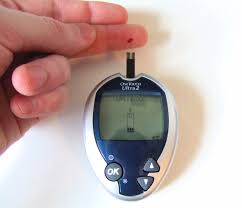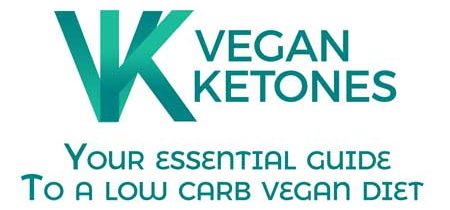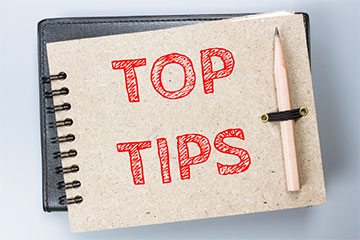These following vegan keto top tips are tried, tested and can really make a difference to your ketogenic lifestyle. They are simple and most of them are really cost-effective options. If you’d like to see any more added, we’re always open to suggestion.
Track what you eat:
Use an online keto calculator or mobile app (we use cronometer.com) This makes it easy for you to stay within your macronutrient target and can keep you on track. It can be surprising to see what we actually eat on any given day.
Measure your ketones:
It’s not always easy to tell if you’re in nutritional ketosis. The following can be a useful way of measuring:
 Urine sticks: These are cheap and easy to use but not always accurate. Best used in the early days of a ketogenic diet. In the longer term our body is more efficient at using ketones for fuel and therefore there are less “left-over’ ketones in the urine. So you may think you’re not in ketosis when you actually are.
Urine sticks: These are cheap and easy to use but not always accurate. Best used in the early days of a ketogenic diet. In the longer term our body is more efficient at using ketones for fuel and therefore there are less “left-over’ ketones in the urine. So you may think you’re not in ketosis when you actually are.- Blood ketone monitor: The gold standard of ketone measuring but the strips that you use to measure your ketones can be expensive and not everyone likes having to draw blood on a daily basis.
- Breath ketone meter: Initial outlay can be expensive but these are accurate and easy to use.
Measuring your ketones is a great way of keeping on track. It shows you if you’re doing the right thing or if you need to modify what you’re eating.
Stay hydrated:
Your body will require more water, so you’ll have to drink extra. Make sure you have a full glass on arising and a few extra glasses during the day. If you don’t your ‘keto flu’ will most likely be worse. It also helps with the hunger oangs in the early days.
Take salt:
1/2-1 tsp of sea salt or Himalayan salt mixed in a glass of water daily. This helps counter-act the extra loss of electrolytes from your body during ketosis.
Gentle exercise only in the first few weeks:
Avoiding excessive or overly-strenuous exercise is a good idea in the first few weeks. Your body is not yet adapted to burning fat for fuel and you can do yourself some damage if you push yourself too soon. However after you’ve settled into ketosis, you’ll be able to exercise as you did before (you may find you’re making new gains!)
Plan what you’re going to eat:
If we know in advance what we’re going to eat, we’re much less likely to make poor food choices. This is the case for both home-cooking and eating out. If you’re eating out be sure to check the menu beforehand. You can always ask for substitutions and if the fat content is not high enough you can bring your own fat bombs or ask for a small amount of olive oil. We’ve written more on this in our FAQ section.
Take extra fibre:
Constipation is top of the list of common complaints on a keto diet. This is easily remedied by drinking extra water and taking extra fibre. Organic Psyllium husk is a great fibre option with other health benefits. Take 1 tbsp in 200 ml of water 1-3 times daily.
Psyllium husk is also a great ingredient for bread and bun recipes!
Drink apple cider vinegar:
Apple cider vinegar is your best friend. It is great at encouraging your digestive secretions so you digest food effectively. This is especially important in the early days when you’re probably eating quite differently to normal. Your digestive system can struggle with the increase of fat and decrease of fibre. Take 5 ml in a glass of warm water 30 minutes before each meal.

It can help also help to soothe heartburn. Take 5ml in warm water to soothe an attack.
Apple cider vinegar is also ketogenic, it provides the liver with an instant source of short chain fatty acids to burn as fuel. Take some if you’re feeling sluggish in the afternoon, or if you’re struggling with carb cravings. Just make sure you dilute it first, 5ml in warm water.
Digestive enzymes:
Use a vegetarian digestive enzyme particularly in the earlier days of a ketogenic diet. Put simply, if your body can’t process the larger amounts of fat you’re consuming it can cause some problems. The most common symptoms are nausea, heartburn and diarrhoea. Digestive enzymes work as a gentle helping hand to your own enzymes, this enables you to get the most out of a ketogenic diet.
Address drivers of inflammation:
Lack of sleep, stress, excessive exercise and chronic infections are all classed as inflammatory. Having too much inflammation in the body is never a good thing. When it comes to ketosis, inflammation can directly stop your body from burning fat for fuel. This is something to consider if you’re struggling to reach ketosis or struggling to stay there.
Eat earlier in the evening:
For our digestive system to work properly, it needs a 13 hour break from food overnight. If we don’t leave this fasting window, our gut doesn’t work properly and we’re more likely to suffer chronic constipation. Overnight fasting has the added benefit of making you feel more alert in the morning. Your body has had a rest from digesting and was able to renew and regenerate overnight. An example of this would be eating your evening meal at 6pm and breaking your fast at 7am the following morning.
 Hunger Pangs
Hunger Pangs
You’ll get hungry, I’m not going to lie! These are some solutions to help:
- A cup of veg stock with a teaspoon of oil.
- Fat Bombs
- Water, water and more water!
- Make a big batch of bread rolls/buns with psyllium husk, these will help you feel full for longer.
We hope these tips are useful, they are things we’ve done to help us get the most our of our ketogenic lifestyle. You’ll probably not use all of them, but these hacks have made life easier for us.

